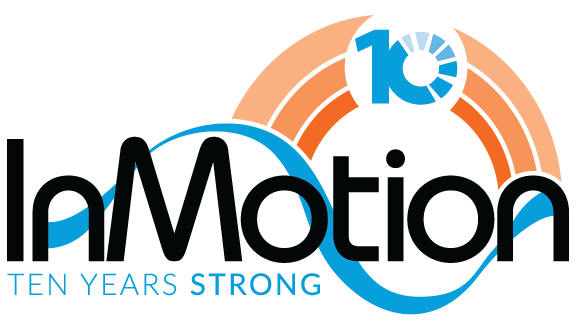Our Research
InMotion® conducts ongoing research that demonstrates the efficacy of exercise, movement and other therapies to manage and delay the onset of disease symptoms.
InMotion® shares its findings globally with medical and other professionals involved in the treatment and care of Parkinson’s disease.
InMotion™ receives a grant from the Parkinson’s Foundation
July 2021 – With a generous grant from the Parkinson’s Foundation, we will begin a study demonstrating how our Better Every Day™ (BED) classes (which focus on movement, balance, endurance and strength) help improve the mental health of class participants.
Our project, titled “Improving Mental Health Through Community-Based Exercise,” is receiving support from the Foundation’s community grants program.
InMotion® Published in Topics in Geriatric Rehabilitation
As a result of a connection that InMotion® leaders made at the 2019 World Parkinson Congress in Kyoto, Japan, our assessment outcomes were published in the August 2020 issue of Topics in Geriatric Rehabilitation, a peer reviewed journal.
The article, entitled “Motor Performance and Quality of Life in a Community Exercise Program for Parkinson’s Disease” (Stiles, E., Jaffe, K., Schwartz, C., Rossi, B., Riley, D.), describes our investigation into the effects of a comprehensive community program composed of exercise, mindfulness practice, and education on motor function and quality of life in individuals with Parkinson’s disease (PD). Having our holistic, integrated approach validated through the peer-review process represents a significant milestone for InMotion®.
In the study, thirty-six participants completed physical and quality-of-life assessments independently at baseline and 12 months. Physical assessments showed stability or improvement in functional mobility, integrated strength, and walking ability over the 1-year interval. PDQ-39 measures showed improvement in 6 of 8 indices: mobility, activities of daily living, emotional well-being, stigma reduction, social support, and bodily discomfort. Our results demonstrate the effectiveness of exercise, mindfulness and education in community and group settings.
Research News
InMotion™ Announces Strategic Consulting Agreement with Kirk Gibson Foundation
InMotion™, a national leader in improving the lives of people with Parkinson’s Disease (PD) through…
InMotion™ Featured by News 5 Cleveland–Climbing for PD Partnership
News 5 Cleveland’s Mike Brookbank visited Shaker Rocks climbing gym, to feature InMotion’s new partn…
InMotion™ Featured on WRUW-FM Radio Show
InMotion™ CEO, Cathe Schwartz, and Co-Founder/Chief Program Offer, Ben Rossi, appeared on the “Sweet Spot” morning show on Wednesday, February 7 to talk about InMotion™…
